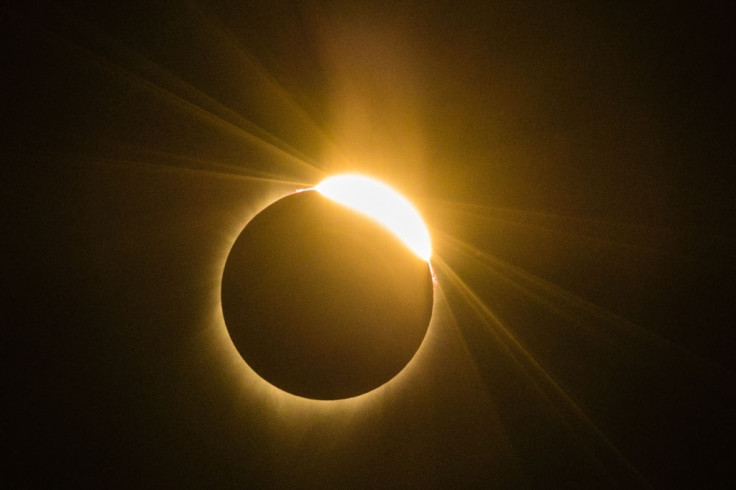The Great American Eclipse of 2017 left 'bow waves' in Earth's atmosphere
The waves in the upper atmosphere are similar to the V-shaped waves left behind by a ship moving through water.

The 21 August total solar eclipse that overshadowed the entire stretch from Oregon to South Carolina, not only offered some mind-boggling views, but also left a weird effect on Earth's atmosphere.
The event created heat-energy ripples or "bow waves", something akin to the V-shaped waves left behind by a ship moving through water, in Earth's upper atmosphere, Gizmodo reports.
Scientists have long theorised the effect, but it proved too small to be detected until researchers from MIT's Haystack Observatory and the University of Tromsø in Norway collaborated and tracked it down.
The team deployed as many as 2,000 sensors across different parts of the country, which came into action during the Great American Eclipse and spotted the ripples in our planet's ionosphere, the part upper atmosphere containing charged as well neutral particles. The phenomenon was seen all over the Central and eastern US.
When the Moon comes in between the Sun and Earth and blocks its light, there is a sudden drop in the heat energy prevailing in the overshadowed area. However, the overshadowed zone keeps moving with the movement of the Moon taking the heat energy with it and creating the bow-wave effect.
"We were looking at some phenomena that were expected but never had the chance to be observed," corresponding author Shun-Rong Zhang of the Haystack Observatory told Gizmodo. "That was the surprise we found... we had a large coverage and our system is sensitive enough to be able to see these smaller variations. That was really very interesting to us."
Though geomagnetic waves can affect the Earth's electric power grids and satellite systems, Zhang noted the waves are not harmful. According to him, studying a phenomenon like this could further our understanding of atmospheric complexity.
The study is published in the scientific journal Geophysical Research Letters.



















